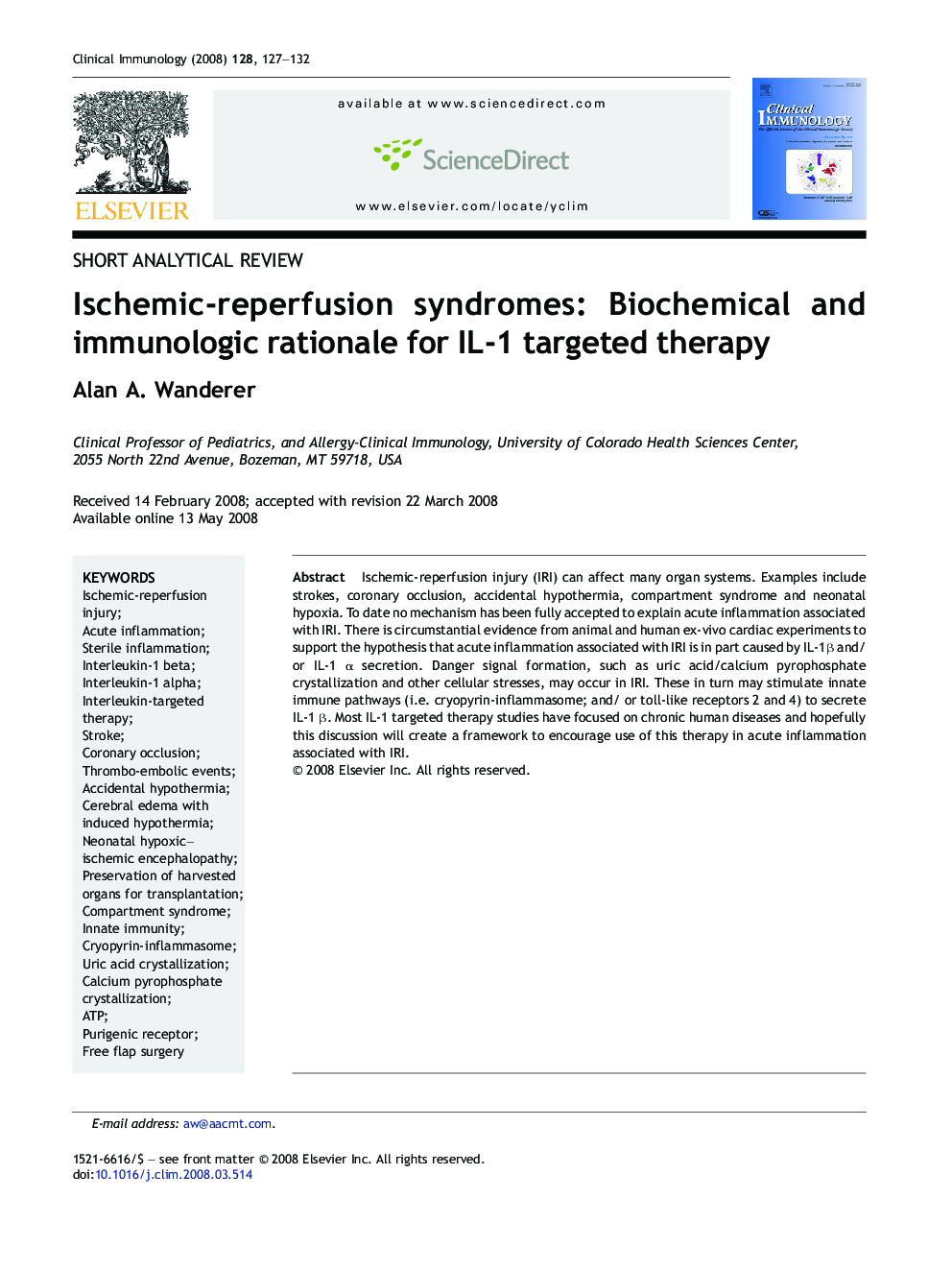| Article ID | Journal | Published Year | Pages | File Type |
|---|---|---|---|---|
| 3257965 | Clinical Immunology | 2008 | 6 Pages |
Ischemic-reperfusion injury (IRI) can affect many organ systems. Examples include strokes, coronary occlusion, accidental hypothermia, compartment syndrome and neonatal hypoxia. To date no mechanism has been fully accepted to explain acute inflammation associated with IRI. There is circumstantial evidence from animal and human ex-vivo cardiac experiments to support the hypothesis that acute inflammation associated with IRI is in part caused by IL-1β and/or IL-1 α secretion. Danger signal formation, such as uric acid/calcium pyrophosphate crystallization and other cellular stresses, may occur in IRI. These in turn may stimulate innate immune pathways (i.e. cryopyrin-inflammasome; and/ or toll-like receptors 2 and 4) to secrete IL-1 β. Most IL-1 targeted therapy studies have focused on chronic human diseases and hopefully this discussion will create a framework to encourage use of this therapy in acute inflammation associated with IRI.
